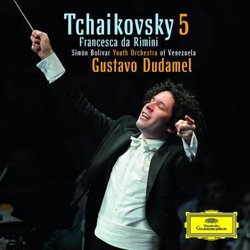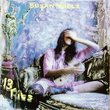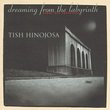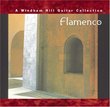| All Artists: Gustavo Dudamel Title: Tchaikovsky: Symphony No. 5; Francesca da Rimini Members Wishing: 0 Total Copies: 0 Label: Deutsche Grammophon Original Release Date: 1/1/2009 Re-Release Date: 3/31/2009 Genre: Classical Style: Symphonies Number of Discs: 1 SwapaCD Credits: 1 UPC: 028947780229 |
Search - Gustavo Dudamel :: Tchaikovsky: Symphony No. 5; Francesca da Rimini
 | Gustavo Dudamel Tchaikovsky: Symphony No. 5; Francesca da Rimini Genre: Classical
Conducting superstar Gustavo Dudamel releases an all-new recording of Tchaikovsky s commanding Fifth Symphony. Once again leading the famed Simón Bolívar Youth Orchestra of Venezuela, this high-energy performance... more » |
Larger Image |
CD DetailsSynopsis
Product Description Conducting superstar Gustavo Dudamel releases an all-new recording of Tchaikovsky s commanding Fifth Symphony. Once again leading the famed Simón Bolívar Youth Orchestra of Venezuela, this high-energy performance is unforgettable and yet again Similarly Requested CDs
|
CD ReviewsAn exciting and excitable Dudamel hits a home run Santa Fe Listener | Santa Fe, NM USA | 04/01/2009 (5 out of 5 stars) "Gustavo Dudamel, now 28, is an exciting and excitable conducotr, a phenom who relies on spontaneoous inspiration (even if it's well rehearsed technically), and the Tchaikovsky Fifth is the ideal vehicle for that kind of sensibility. It allows almost any amount of volatile theatricality, and the most extreme performances, in terms of varying from the written text, can be very successful -- witness the versions from Stokowski, Bernstein, Fricsay, and Tamirkanov. They all ask the listener to surrender to romantic excess. Dudamel asks for that, too, although not to the farthest extreme. His full-blown reading is miles away from George Szell's tight discipline (even though the Fifth can take that approach also). DG gives the Simon Bolivar Youth Orch. big, blowzy sound with tons of bass and a stadium-wide soundstage. Dudamel takes his time shaping every expressive event in the first movement, and either you'll love him for it or dismiss his approach out of hand (as the London Times' reviewer did with a snort, saying that buying this CD was an act of charity). A good place to test this prformance is the Andante cantabile, which is unusually quiet and heartfelt at the beginning. The solo horn isn't pushed forward but hovers over a cushion of wistful string chords. The buildup to the passionate middle section is gradual yet ecstatic when the climax arrives. The music naturally sighs, and Dudamel sighs with it. I think he could have relased us into a sunnier, more buoyant waltz to provide some contrast, but the tempo of the third movement remains fairly broad, and the conductor plays for atmosphere and mood with plenty of shaping. If you want the melodic line to be left alone, you won't necessarily be happy here. The finale begisn with an impressive swell of string sound. I haven't heard the SBYO in concert, so I don't know if their playing is rough and unsophisticated, as some critics report. On CD they sound like complete professionals -- the wind soloists mkae up in soulfulness what they lack in absolute virtuosity --and for all his high energy, Dudamel is careful to voice brass chords smoothly and richly. Again there's a hint of restraiant compared to more unbottoned readings. Dudamel's liking for the slow buildup shows good instincts, I think. The finale repeats much the same material over and over, so a lot depends on finding changes of mood, which Dudamel does very well. The fast middle section springs to life with a timpani roll that's like a starting gun. The final climaxes are somewhat reined in, but Tchaikovsky's organ tones from the brass section are beautifully sonorous here. I came away with the impression that Dudamel had made real music out of a warhorse and never took the easy route. What more can one ask for? Francesca da Rimini, based on an episode in Dante's Infrno, calls for utmost drama, tension, and emotionalism. It's a piece where pulling out the stops is almost a conductor's duty. But Dudamel tries a different tack in this live performance, giving us a soulful, almost meditative reading that's one of the slowest on disc at 25 min. Francesca and her lover Paolo have been turned into birds tossed in a whirling wind so that they are doomed to long for each other but never touch. Dudamel doesn't turn the wind into a typhoon (perhaps he also had to slow down for the young string players so they wouldn't scramble). The result in toto isn't as gripping as fervent readings from Bernstein, Markevitch, and above all, Mravinsky. This instead is an interpretation about longing and pain. As with the symphony, Dudamel seems determined to make hackneyed music fresh and personal at the same time. To my ears, he's succeeded splendidly." No feeling for delicate passages Andras Wagen | Hamburg | 06/05/2009 (2 out of 5 stars) "Unfortunately, Dudamel is only strong and "at home" in forte passages. His adagio and andante, on the other way, is completely lost in the mist. The lyrical passages lose all their magic. Last not least, the strings are not up to their best here. The soul of this extremely intense music cannot be found on this CD. So, although I appreciate the enthusiasm of this young orchestra from Venezuela, I was most disappointed with this recording. For all those who look for the intense poetry and contrasts in Tchaikovsky's music, this is not the recording to go for." The Innate Musicality of Gustavo Dudamel Grady Harp | Los Angeles, CA United States | 04/08/2009 (5 out of 5 stars) "DGG made a wise choice in signing Gustavo Dudamel and the Orquesta Sinfónica Simón Bolívar - the prime youth orchestra of Venezuela - for a series of recordings before he had planted roots in the United States. There is a special communication between orchestra and conductor that is apparent as they tour the cities of the US. No, the quality of sound has not the polished gleam of the orchestras Dudamel is conducting outside of Venezuela, but hearing music form the conductors roots informs audiences just how innately musical Dudamel is.
For this listener it seems a wise choice to record the familiar works now released: with symphonies so well known there is time to examine the approaches to phrasing and dynamics and architecture, and here Gustavo Dudamel easily demonstrates his gifts. This is a warmly splendid reading of Tchaikovsky's Symphony No. 5. It may come as a surprise to those unfamiliar with Dudamel's magic he creates with orchestras he conducts that the performance is not played for flash and bombastic impact. Instead he elects subtleties of phrasing and sensitive balances among the various choirs of the orchestra that result in a powerfully heartfelt and emotional performance without superimposing artificial emphasis on climaxes and 'heart on the sleeve' techniques. Repeated listenings reinforce just how mature this reading is in comparison to the many other recordings long held as gold standards. This listener agrees with Santa Fe Listener's fine review on every point. The 'Francesca da Rimini' is a tone poem that, while well written and performed as it is here, never quite catches fire for this listener. That is not to say it is not worth yet another recording, but somehow the glory of the Symphony No. 5 asks for silence and time for meditation at the end instead of the CD immediately tracking the flights of the added tone poem. That is a personal mater for the listener: Dudamel makes a convincing argument for the inclusion of this less often performed work in the repertoire. Grady Harp, April 09" |

 Track Listings (5) - Disc #1
Track Listings (5) - Disc #1





